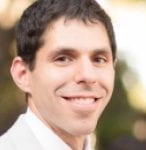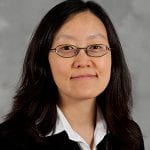

March 26, 2021
Virtual Event – see description for participation info
Multi-cellular engineered living systems (M-CELS) are purpose-driven living systems with multiple interacting living components. They are engineered for specific goals or functions but take emergence into account during the design process, allowing the final system to emerge through natural and non-natural biological processes.
M-CELS research is intended to provide a fundamental engineering understanding that enables a quantitative approach bridging between single cells and organs or organisms.
Thank you for joining us for this M-CELS Seminar discussing brain organoids.
AGENDA
4:00 p.m.: “What Does the Developing Brain Want?” – Hang Lu, Ph.D., Love Family Professor of Chemical and Biomolecular Engineering, Georgia Tech
4:30 p.m.: “Engineering the Next Generation of Organoids” – Melissa Cadena, Graduate Student and Steven Sloan, Ph.D., Advisor, Georgia Tech
5:00 p.m.: Adjourn
ABSTRACTS
“What Does the Developing Brain Want?” – Hang Lu, Ph.D.
Brain organoids are promising systems for studying developmental, psychiatric, and other neurological diseases. With the possibility of using patient-derived cells, they provide a platform for mechanistic studies as well as drug screens. The holy grail has been how to direct differentiation, how best to mimic disease conditions, how to rein in stochasticity, and how to increase reproducibility and efficiency. Are micro or mesofluidic systems really the answer? Is there a minimal condition to produce these organoids? Is size limiting the complexity of these systems? Can time be sped up or slowed down in these systems? How and what do we measure to help address these questions?
“Engineering the Next Generation of Organoids” – Melissa Cadena
The ability to direct human somatic cells into induced pluripotent stem cells (iPSCs) has revolutionized the field of developmental neurobiology. Even more powerful is the development of protocols that promote the self-organization of iPSCs into whole tissues or organs, often referred to as organoids. Using various protocols, we can now generate organoids that recapitulate various brain regions. These models can be used to study neurodevelopment, study developmental neurodegenerative, or neuropsychiatric disorders, and serve as a drug screening and discovery platform. Despite these advances, there remain several important limitations of brain organoids. Namely, the lack of cell-type diversity seen in vivo, the absence of morphogen gradients, the lack of vasculature, and scalability.
This M-CELS Seminar is a joint student-led seminar series by UIUC, GT, and MIT.
